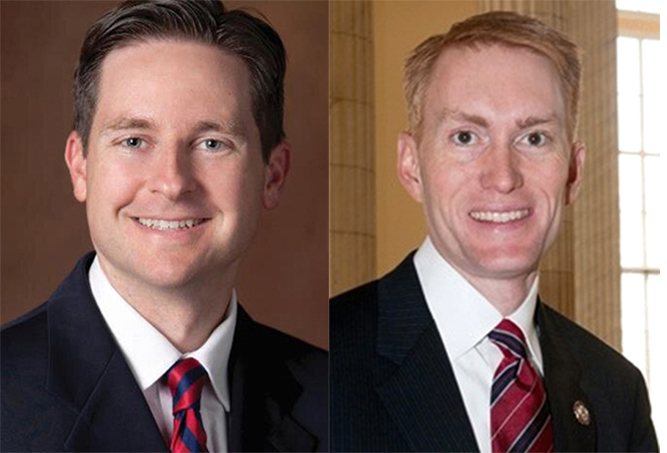
OKLAHOMA CITY (BP) — Oklahoma’s adoption of what may be the nation’s most permissive medical marijuana law has left some evangelicals concerned the drug could gain an increased hold on the state.
“The approval of so-called medical marijuana is disappointing but not shocking,” Brian Hobbs, editor of Oklahoma’s Baptist Messenger newsjournal, said in a statement. “The culture in America is increasingly in favor of marijuana use, and this state question gives marijuana a dangerous foothold in the Sooner State. Christians need to redouble our efforts on warning people — especially young people — about the spiritual and physical ramifications of these mind-altering, addictive drugs.”
By a 57-43 percent margin, Oklahoma voters approved State Question 788, which legalizes medical marijuana without specifying the ailments for which it may be prescribed. The District of Columbia and the 29 other states to legalize medical marijuana all have laws specifying the conditions for which it may be prescribed, according to the Tulsa World.
Oklahoma’s law, approved by voters June 26, permits individuals 18 and older to obtain a medical marijuana license with the approval of “an Oklahoma Board certified physician.” Minors will be permitted to obtain medical marijuana with the signatures of “two physicians and the applicant’s parent or legal guardian.”
The law will take effect July 26, though the World reported it could take nine months or longer for the measure to be implemented. The state’s Health Department will begin receiving license applications Aug. 25 from patients, caregivers, growers, processors, transporters and dispensaries.
Some 40,000 applications are anticipated, the World reported.
Among Southern Baptist opponents of SQ 788, the Messenger reported, were U.S. Sen. James Lankford; Baptist General Convention of Oklahoma Executive Director Hance Dilbeck; and Ethics & Religious Liberty Commission President Russell Moore.
Lankford, a Republican, told The Oklahoman newspaper before the election that while he generally does not weigh in on state policy, he “felt compelled” to speak about marijuana because it “has just such a dramatic effect on our families and schools and our businesses and the future of our state.”
“I’m really concerned, if this passes, what happens with driving under the influence,” Lankford said, “what happens with workplace injuries, what happens with college students and dorms and the growth of marijuana.
“I just don’t know anyone who can say with a straight face, ‘The best thing for our families is to get more parents and grandparents to smoke marijuana.'”
Earlier this year, the National Highway Traffic Safety Administration launched an initiative to combat drug-impaired driving, noting in a news release that an initial Crash Risk Study found marijuana users are more likely to be involved in automobile accidents — though more research is needed on whether their marijuana use was the factor to increase their frequency of crashes.
Oklahoma Gov. Mary Fallin, a Republican who opposed the medical marijuana measure, said she respects “the will of the voters” and “will be discussing with legislative leaders and state agencies our options going forward on how best to proceed with adding a medical and proper regulatory framework to make sure marijuana use is truly for valid medical illnesses.”
The week before the election, Oklahoma’s Health Department began circulating a draft of proposed regulations for medical marijuana to address some concerns of critics, The Oklahoman reported. Among the proposed regulations:
— Only doctors of medicine or osteopathic physicians would be allowed to prescribe medical marijuana.
— Patients would not be permitted to smoke or vape medical marijuana in the presence of minors or anywhere smoking tobacco is illegal.
— Licensed sellers would be prohibited from offering marijuana products that appeal to children, like gummy bears or lollipops.
Health Department officials hope to finalize the regulations July 10, The Oklahoman reported, and Fallin would then have 45 days to approve or reject them.
Despite the regulations, cultural commentator R. Albert Mohler Jr. suggested Oklahoma’s new law seems to give a “tacit wink that we’re not really talking about medicine … we’re just talking about marijuana.”
When Colorado legalized so-called medical marijuana before its legalization of recreational marijuana, Mohler warned June 29 on his podcast The Briefing, the state “ended up with more medical marijuana dispensaries than Starbucks and McDonald’s combined.”
Nine states and the District of Columbia have legalized recreational marijuana.
Marijuana remains illegal under federal law.
The U.S. Drug Enforcement Administration classifies marijuana as a “Schedule I” drug — signifying it has no accepted medical use, is not accepted by experts as safe for use under medical supervision and has a high potential for abuse. The Obama administration announced in 2016 it would maintain that classification, supporting its decision with release of 400 pages of marijuana-related materials, including citations of more than 200 published studies.














